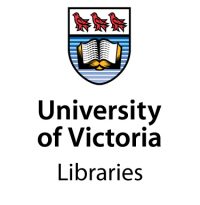By Brydon Kramer
https://dspace.library.uvic.ca:8443/handle/1828/12476
A Master of Arts thesis in the Department of Political Science
Abstract:
This thesis mobilizes the concept of “colonial entanglement” to emphasize the deep complexity and unpredictability of Indigenous and non-Indigenous relationships within what is now known as the Banff-Bow Valley. Responding to various literatures—including Indigenous Studies, Settler Colonial Studies, Political Theory, and Canadian Politics—I posit that the concept of colonial entanglements offers a parallax view of contexts, such as the Banff-Bow Valley, and events like the Buffalo Reintroduction Project. Not only does such a concept reveal how Indigenous nations— both human and non-human—are targeted by the racializing and gendered entanglements of colonizing regimes that seek to break up and replace them, but it also shows how these nations continue to persist and resist despite colonizing efforts to achieve otherwise. In other words, colonial entanglements compel one to also consider how nations like the Ĩyãħé Nakoda also exert influence on other Indigenous and non-Indigenous life in the Banff-Bow Valley—albeit, in different ways and to different degrees. After unpacking the concept in the first chapter, I use colonial entanglement to show how colonizing regimes and their expansionist modes of relationship react to the Indigenous nations they become entangled with. Using the signing of Treaty 7 and the establishment of a national park in Banff, I reveal how the Canadian state seeks to erect colonizing regimes of property that cater to capital as they transit the Banff-Bow Valley by ‘breaking up’ and ‘breaking from’ Indigenous nations and their expansive modes of relationship. Next, I consider how such reactionary violence is continually justified and legitimated through the articulation and reiteration of state of nature fictions that rely on notions of wilderness and tropes of Indigeneity to delegitimize the enduring presence of Indigenous nations. Specifically, I look at the Indian Act, the prohibition of hunting in the Park, and the Banff Indian Days festival to show how state of nature fictions articulate a supposed transition from a “past state of nature” to a contemporary “state of (dis)possession” entangled with white supremacist and heteropatriarchal forms of power. In doing so, these fictions make and reproduce colonial subjects who buy into and support colonizing violence and breakage that disproportionately targets those Indigenous to place. In the final chapter, I turn to focus on the Buffalo Reintroduction Project. Here, I consider how the project presents contemporary opportunities for both Indigenous and non-Indigenous people to support and/or disrupt colonizing states of (dis)possession and the state of nature fictions they rely on, while also considering the project’s potential for a politics oriented towards expansive modes of relationship revolving around principles of decolonization and anti-colonial internationalism.
To read more, visit UVicSpace
*UVic’s open access repository, UVicspace, makes worldwide knowledge mobilization possible. Through this platform, researchers at any institution have access to dissertations (and theses and graduate projects) published by our graduate students. This also makes works available to the interested layperson, who may be engaged in learning more about the research being done at UVic, with no paywall. UVic’s graduate students are doing valuable research every day – but sometimes it goes unsung. Our goal with this series is to shine a light on our students by featuring excellence, one achievement at a time.
The UVic LIbraries ePublishing Services Team
